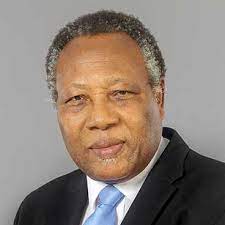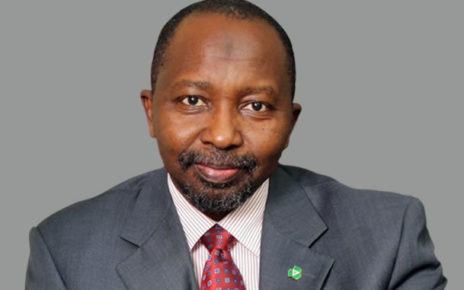The Nigeria Agribusiness Group (NABG) has canvassed a strong and stable Naira exchange rate for international currencies in order to boost food production and other sectors of the economy.
The group’s Vice President, Dr. Emmanuel Ijewere, was quoted by the Vanguard newspapers as strongly canvassing the monetary policy option on Wednesday while responding to questions on issues responsible for the high foreign exchange and decried discrepancies in foreign exchange (forex) rates accessed by Nigerians.
Ijewere, a foremost financial expert and former President of the Institute of Chartered Accountants of Nigeria (ICAN) also rued the unbridled importation of exotic foreign foods in view of the negative implications for local food production and the nation’s foreign reserves.
As a way to mitigate the negative impacts of unbridled food imports into the country, he called on the government to come up with policies that would help farmers grow food for Nigerians and stop the importation of foods that can be produced locally.
He expatiated: “The purchasing power of the Naira must be allowed to run that means a willing buyer and a willing seller but where there is a holding down of exchange rate, and also discriminatory exchange rate that some particular parts of Nigeria will collect foreign exchange at this price while others collect at some other prices.
“That is bad! There is no mentality in that. I would have wanted the Naira to find its own level, and at the end of it there is cultural perspective; when the Naira gets low that means it is very difficult to buy Naira, and it will discourage Nigerians from eating exotic foods.
“They will start eating local foods because those exotic foods they are importing from abroad are putting pressure on our foreign exchange will reduce, and after some time encouragement for export because people will earn a lot more in terms of Naira from their own export.
“So this artificial situation that the position is not clear is not a question of has Naira found its level? Let Naira finds its level like everything else, let the willing buyer and willing seller determine what the price is, and that is what I believe should be”, the agro industrialist added.
On the way forward, the NABG Vice President advised against artificial pegging of the Naira exchange rate and creating the discriminatory rates for people by the monetary authorities, saying doing this encourages corruption at various levels and people now go start a full-time business in foreign exchange without adding any value to Nigeria’s economy.
According to him, these are the dangers that cause great discouragement in foreign change and Nigeria’s economy.
On the rising food prices, he said: “The high food prices in the market is that the tools that would have been used for production by the government to encourage local production is not been used and the tool that could have been used.
“If Government makes imported food a lot more expensive and make Nigerians grow food because we have the land that will encourage farmers to grow more food, create better value chains for the food grown, and we know we can grow five times the maize we need in Nigeria if the right policies are in place.
“But today we are under-producing so we are now ending up importing maize from other countries because the government has the foreign exchange to do it. If government would have allowed maize to find its own level people will grow maize that would take three-four months to mature.
“So, the policies are all we need, and the leadership should ask Nigerians what we want, what is good for Nigeria, and the things that are good for Nigerians are known to everybody. There are too many opaque reasons given with agricultural sector”, Ijewere added.
Expatiating further on the threat posed by the current foreign exchange regime as it affects food security and availability, the agribusiness investor said: “As long as foreign exchange is cheap to get for some people to import food into Nigeria is a threat to our future because many of those countries subsidize their own food and send to us on subsidy, Nigeria does not have that policy and does not do it to subsidize and protect our own farmers.
“Other countries from where we are importing food are protecting their farmers, some export food to us because it is surplus to them rather than burying it in the ground or dumping it in the sea they send it to us at whatever price.
“It might be cheap for the person who is buying but Nigeria as a nation, the long term cost is extremely high because it will create unemployment, and situation where people believe you can make money without working because they have a connection to foreign exchange”, the NABG maintained.




